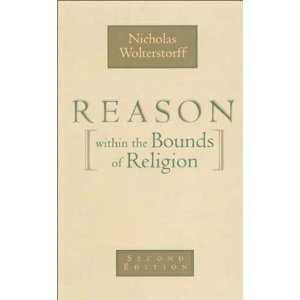What is “relational” truth?
Several posts ago I argued that the Bible is mainly concerned with relational truth (as opposed to mathematical, physical, or logical truth). Today I want to expand on the notion of relational truth and connect it with the need for Christians to understand in order to believe, rather than “simply believing.”
Relational truth comprises both factual and relational knowledge of entities. On the one hand, it is information about someone as understood more objectively: knowledge of past deeds, situations, and other facts that can be itemized or listed. On the other hand, it is the intimate knowledge that one only gains through ongoing relationship with that individual. This type of information is always personal (though it need not be individual).
To clarify this last point, relational knowledge is information derived from personal involvement and that reveals not just what someone did, who that person is. Yet this information could come via someone else, who has had close involvement with the person in question—someone who “testifies” about this person on the basis of his or her personal experiences.
So relational truth is comprised of factual and relational knowledge. Yet because these words seem overly similar I tend to use French verbs instead, savoir and connaître, in place of “factual knowledge” and “relational knowledge.” Savoir refers to information about someone (date of birth, passport number, employment record, etc.) and connaître refers to knowing someone through relationship (understanding personality, character, preferences, etc.).[1. The German kennen and wissen would do similarly.]
Savoir is knowing details about someone’s life; connaître is actually being a part of that life.
An important characteristic when evaluating savoir and connaître knowledge is what I will call “relational symmetry.” Relational symmetry exists where the the outward characteristics and markings (the factual, savoir knowledge about the individual) are mirrored by the inner qualities that one perceives through the connaître experience of relating with the individual—where the external and visible is consistent and consonant with the inner and private.
Examining this notion more deeply, relational truth must necessarily be attuned to the nature of the parties involved in the relationship: those to whom this truth pertains. In the case of Christianity, we are first dealing with relationship between humans and God. As a result, relational truth is also related to / comprised of anthropological truth (or human-related truth) and theological truth (or God-related truth).
Now one of the reasons that Christians are meant to understand in order to believe (rather than “simply believing”) is that the very nature of Christian faith, as a relationship between human beings and God, requires assessment that is both related to and distinct from how we might assess a human-to-human relationship. In other words, understanding the Bible’s truth claims (and validating them, by determining their truth value) is a process similar to everyday human activities and yet also different.
A couple things bear mentioning here.
On the one hand, this tension between what is similar and what is different is normal and good. More specifically, human beings make use of this sort of tension all the time: we learn how to do new things on the basis of having done other, similar things in the past. And most times the dissimilarities are small or easily accommodated, so on most occasions humans integrate the differences without need to attend to them overly (or even without paying conscious attention to them).
On the other hand, when people “simply believe” Christian truth claims without validating them this has a negative effect both on them and on those with whom they interact. For example, if I “simply believe” that Jesus is God then my belief lacks the complexity and internal structure needed to stand up to evil and despair, nor have I developed the intellectual and emotional acumen to engage well with people who have experienced such. Further, because I have not understood how Christianity integrates with real life I will actually have understood Christianity, and so my presentation of the Christian God will typically be flimsy and uncompelling.
Thus Christians both short-change themselves and others by not engaging with the process of understanding themselves, God, and the relationship between the two, both through the biblical portrayals and through other, valid, information sources.
How we validate the Bible’s truth claims in terms of relational truth must await my next post. Instead I will finish by summarizing two key points.
First, relational truth in comprised of factual and relational knowledge (or what I have called savoir and connaître) and requires a good understanding of both parties within the relationship both (including anthropology and psychology, as the study of humanity, and theology as the study of God).
Second, a key component to relational truth is the alignment of savoir and connaître: relational symmetry. This is crucial to Christianity, both because the biblical text claims that God is good and is involved with humanity for their good / flourishing, and because human beings require consistency within relationships in order to maximize their ability to flourish.


